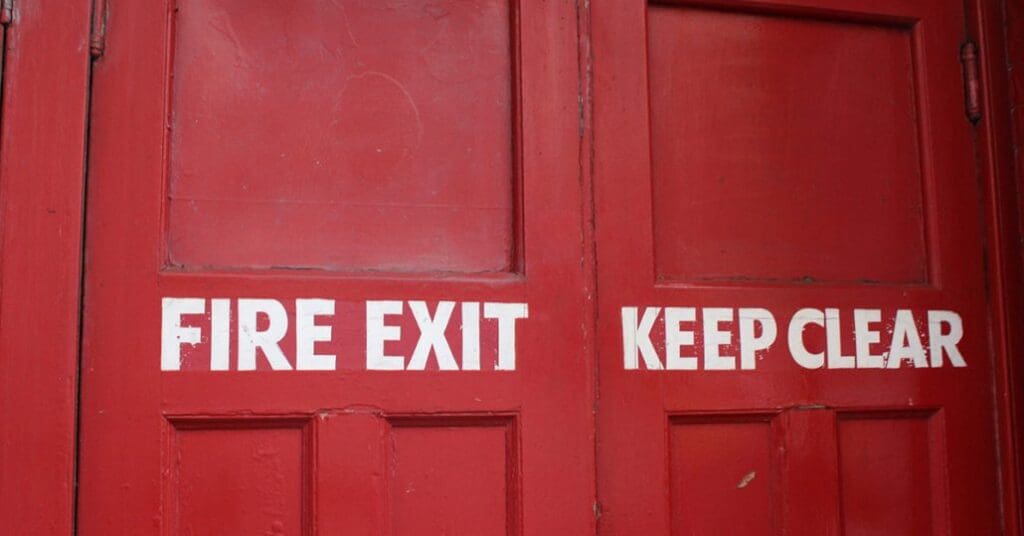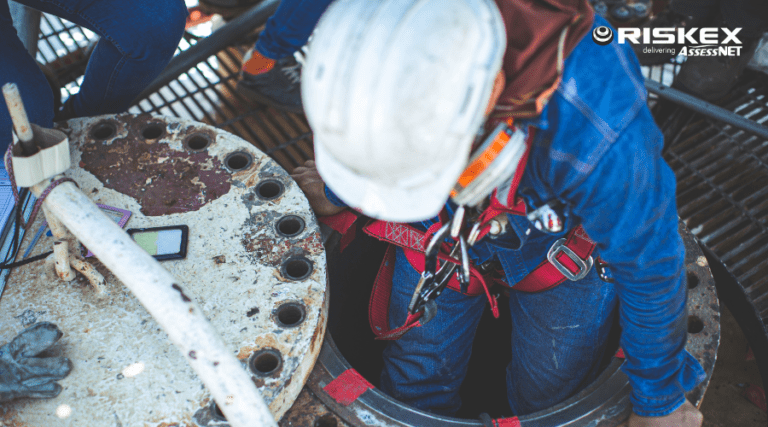Every organisation must have Health & Safety plans, including defence against fire
After Grenfell’s tragic headlines, followed by the hiatus of empty offices during the Covid pandemic and a slow return to the workplace, defence against fire is more important than ever. However, some organisations still lack the basic fire hazard training and discipline to follow it. For example, interior fire doors are all-too-often left open for “fresh air”, entirely negating their purpose of halting fires in their tracks before they can cause more serious harm.
According to UK government figures, incidences of fires in the workplace had increased six-fold over the decade leading up to March 2020, and therefore, workplace fire safety is an ever-growing concern. But where should efforts be focused?
Here are 5 tips for how organisations can improve the best defence against fire, creating a safer environment for all.
1) Check fire alarms
Fire alarms are the first defence against fire, which means they’re an essential piece of equipment that must be maintained or replaced when necessary. Since many workplaces were left unattended due to remote working, fire alarms must be tested as workers come back to sites, even in a hybrid scenario.
While testing alarms promotes good fire safety, it’s also a legal requirement to ensure fire alarms are working properly. The law states that fire alarms in workspaces must be regularly tested to ensure they work as required. It is estimated that 20% of businesses in the UK get their fire alarms tested only once a year, which is a troubling statistic.
Fire alarms must be tested regularly to determine that they work when needed, aren’t susceptible to false alarms, emit the proper noise and can be heard by those in the area for their own safety. Failing to have them frequently tested ultimately puts lives at risk.
2) Refresh fire safety training
Fire safety training can take many different forms, such as what to do in a genuine emergency, the firefighting procedure, or a false alarm procedure. What to do in a genuine fire emergency scenario is arguably one of the most important things people need to know when working. To save lives, it’s crucial that everyone knows information such as where emergency exits are located, how to behave during an emergency, and where to gather when outside the premises.
Employers have a legal responsibility to train employees on these procedures.
Fire training is also important and safe workplaces will have fire extinguishers and fire blankets on site for employees to use. Knowing where these are located and how to operate them in an emergency can help prevent small fires from spreading across the workplace and causing any significant damage.
False fire alarms can also arise in a variety of ways, such as the alarm itself having a fault, unnecessary smoke in the building, whether from people or appliances, or even hot steam in the air. While it is obviously a priority to prevent a false alarm, it is important to still have a procedure in place to determine if it is a false fire alarm, or if action does need to be taken. Training staff on the dangers of false alarms and how to prevent and react to them, as well as testing a facility’s fire alarm’s responses, will maintain good health and safety measures and ensure that the workday isn’t jeopardised by a preventable mistake.
3) Consider the storage of waste and other materials
Safe storage of waste and other flammable materials can help to prevent the spread of fire if one breaks out. Highly combustible material and recyclables, such as paper and cardboard, should be stored away from places of potential ignition, such as heaters or electronics. Keeping these materials in a designated safe storage area will reduce the risk of them catching alight and causing a fire. Any build-up of these materials is also dangerous, so storage levels should be checked regularly and cleared when possible. Avoid storage of any flammable materials against the outside of the building, as this can also be a potential fire hazard.
Keeping the office or facility clean is another way that fires can be prevented. Rubbish bins, especially those containing paper, should be emptied when they get full, and regular dusting or cleaning also promotes good fire safety practice, especially dust build-up around electrical outlets.
4) Maintain equipment and machinery
Faulty electrical equipment is one of the leading causes of fire in the workplace, so it’s important for businesses to keep their equipment organised and maintained to reduce the risk of them developing a dangerous fault.
Loose wires and cables are the main problem, especially when they’re tangled up with other wiring. Businesses should check areas where wires may have crossed with each other, such as under or behind computer desks and de-tangle if necessary. It’s also a good idea to check the wires for any tears on the outside of the cable. If you can see any of the copper interior, they should be replaced immediately.
Plug sockets are another offender of faulty electrical equipment. In a busy office or facility, it’s likely that a lot of machines and appliances will need to all be running at once, so it’s even more likely that extension leads will be used to keep everything switched on. While they have their uses, they use a lot of energy, which means they can also generate a lot of heat, which can cause a fire if left unattended. Always switch plugs off overnight or when something isn’t in use. Unplugging certain appliances that may not be used often is also a good idea.
5) Ensure fire exits are maintained
Emergency fire exit doors are also a vital piece of equipment, which means they must be treated properly to ensure that they work as intended. Does the fire door open and close when needed? Are they easily seen and obvious as fire exits? Is it easy to get to them?
Fire exit doors must always be shut properly when not needed and should never be propped open to ventilate a room. If the door won’t close properly, there is a fault that must be addressed. Additionally, they must be accessible in an emergency. Never use the space in front or behind the door for storage, have staff stood on either side, or block the door in any way. Ensuring that the area surrounding it is clear of obstruction at all times should be a continuous priority.
Fire safety, which has always been a business-critical imperative, is an increasingly important consideration for businesses post-pandemic, as working patterns return to normal workplaces. Making sure that these sites are fire safe is something all business owners and staff members need to be aware of.
By testing fire safety systems regularly, refreshing any fire safety training and having all the correct safety measures in place, businesses can rest assured that they can welcome all employees back to the workplace as safely as possible.






